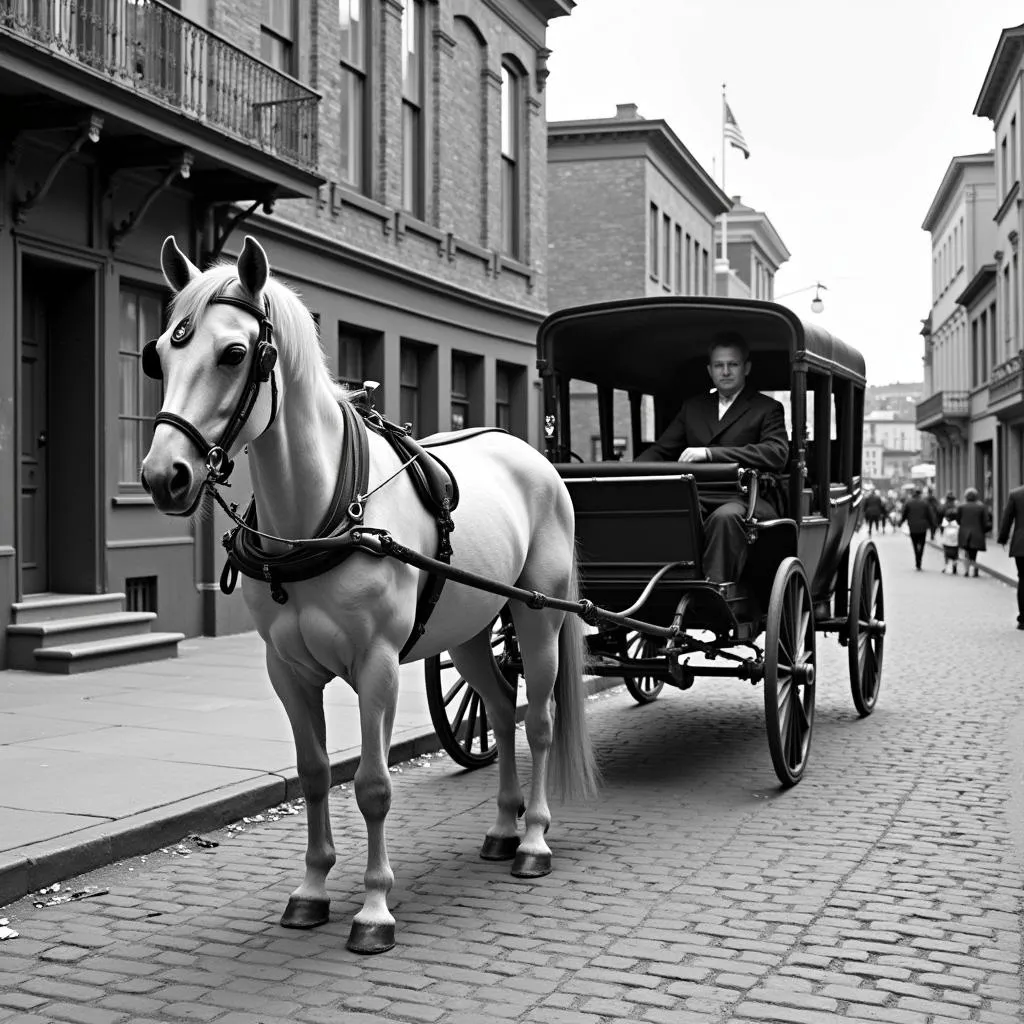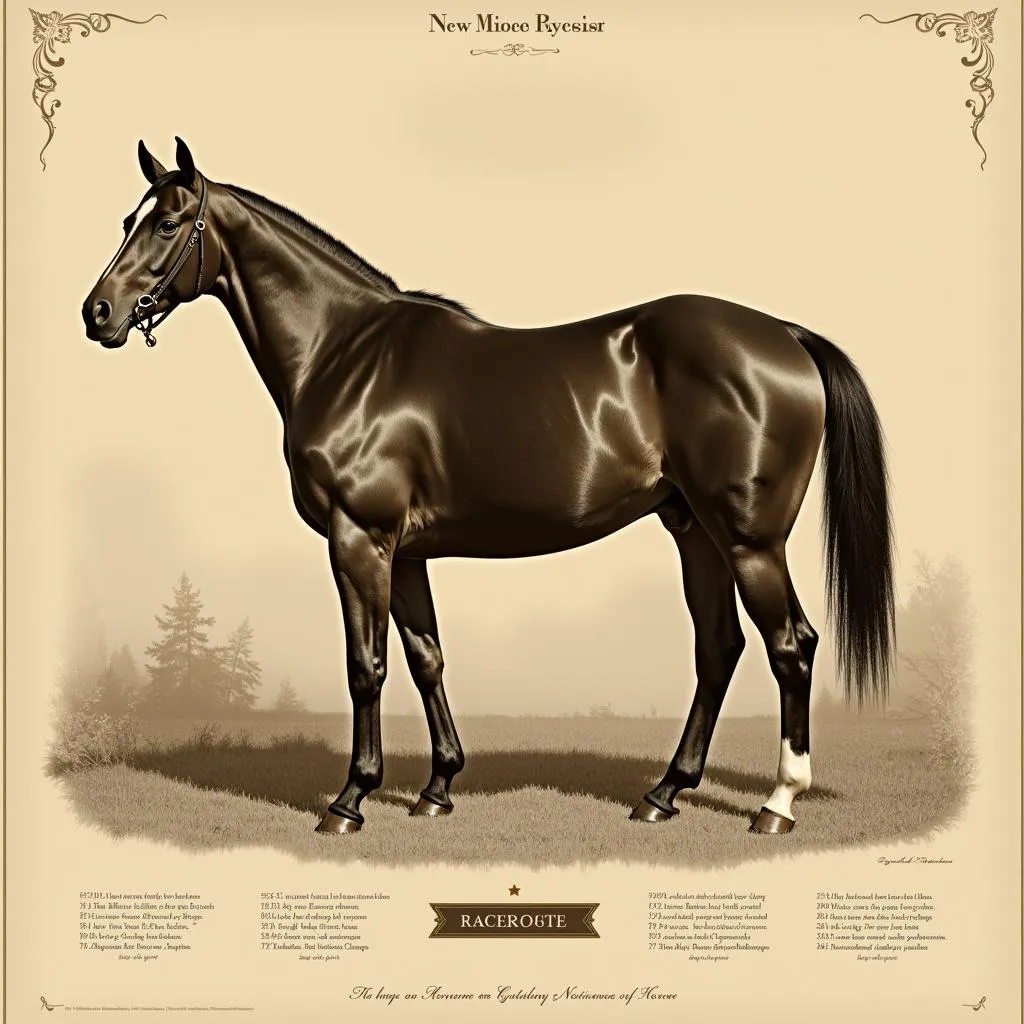The 19th century, a time of westward expansion, industrial revolution, and societal change, also witnessed a fascinating evolution in horse names. These names, often reflective of the era’s trends and values, offer a glimpse into the close bond between humans and horses. From simple and practical to elegant and evocative, “1800s Horse Names” provide a unique window into the past.
Popular Horse Names in the 1800s: A Reflection of the Times
Just like today, horse naming conventions in the 1800s were influenced by various factors, including appearance, temperament, breeding, and societal trends. Let’s delve into some of the most popular categories:
1. Names Inspired by Physical Attributes:
- Color: Chestnut, Bay, Black, White, Gray, Roan, Dun, Palomino
- Markings: Star, Blaze, Sock, Stocking, Bald Face
- Size and Build: Major, Prince, Duke, Lady, Queen, Belle
2. Names Reflecting Temperament and Personality:
- Spirited: Firefly, Comet, Rebel, Lightning, Thunder
- Gentle: Daisy, Gentleman, Patience, Dove, Bonnie
- Strong: Samson, Hercules, Atlas, Champion, Victor
3. Names Inspired by Famous Figures and Events:
- Historical Figures: Napoleon, Wellington, Victoria, Lincoln
- Literary Characters: Romeo, Juliet, Hamlet, Don Quixote
- Mythological Beings: Jupiter, Venus, Apollo, Diana, Thor
4. Names Highlighting Practical Roles:
- Farm Horses: Dobbin, Barney, Sam, Kate, Molly
- Carriage Horses: Prince, Duke, King, Queen, Lady
- Racehorses: Flying Childers, Eclipse, Man o’ War
The Significance of Horse Names in the 1800s
The names bestowed upon horses in the 1800s were more than mere identifiers. They reflected the important role horses played in society, from transportation and agriculture to sport and companionship.
- Emotional Connection: Names like “Bonnie” or “Gentleman” suggest a deep affection and respect for horses.
- Status Symbol: Horses with grand names like “Duke” or “Queen” often belonged to wealthy families, signifying status and prestige.
- Practicality and Purpose: Names like “Dobbin” for a plow horse or “Flying Childers” for a legendary racehorse underscored their specific roles.
 Horse and Carriage
Horse and Carriage
Unveiling the Stories Behind 1800s Horse Names
Each horse name from the 1800s likely holds a unique story, reflecting the individual characteristics of the horse, the preferences of the owner, or the prevailing trends of the time.
Expert Insight:
“Researching 1800s horse names can be a fascinating journey into the past,” says Emily Carter, an equine historian. “Old journals, stud books, and even literature from the era can offer valuable clues about naming practices and the stories behind these names.”
 Vintage Horse Portrait
Vintage Horse Portrait
Conclusion
Exploring the world of “1800s horse names” provides a captivating glimpse into a bygone era. These names, often imbued with meaning and purpose, reveal the multifaceted relationships between humans and horses throughout history. From workhorses to champions, each horse carried a name that reflected its place in the world.
FAQs
1. Where can I find more information on 1800s horse names?
Historical societies, antique horse books, and online resources dedicated to equine history can provide further insights.
2. Were there any specific rules for naming horses in the 1800s?
While there weren’t strict rules, certain conventions and trends influenced naming practices, often varying by region and social class.
3. Did the popularity of certain horse names change throughout the 1800s?
Yes, just like today, horse naming trends evolved throughout the 19th century, influenced by cultural shifts and historical events.
Need help choosing the perfect name for your equine friend?
Contact Justus Horses USA today! Call us at 0772127271, email us at [email protected], or visit our location at QGM2+WX2, Vị Trung, Vị Thuỷ, Hậu Giang, Việt Nam. Our 24/7 customer support team is here to assist you.